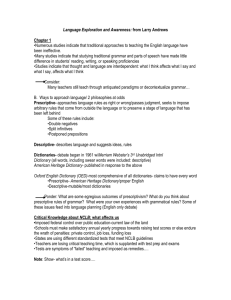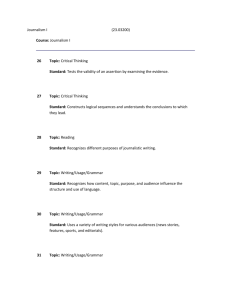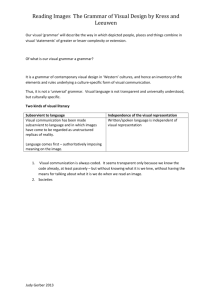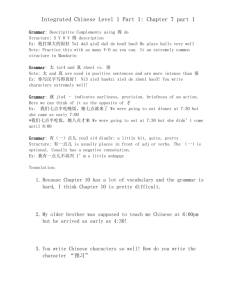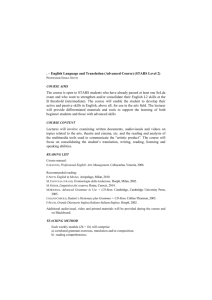Spelling
advertisement
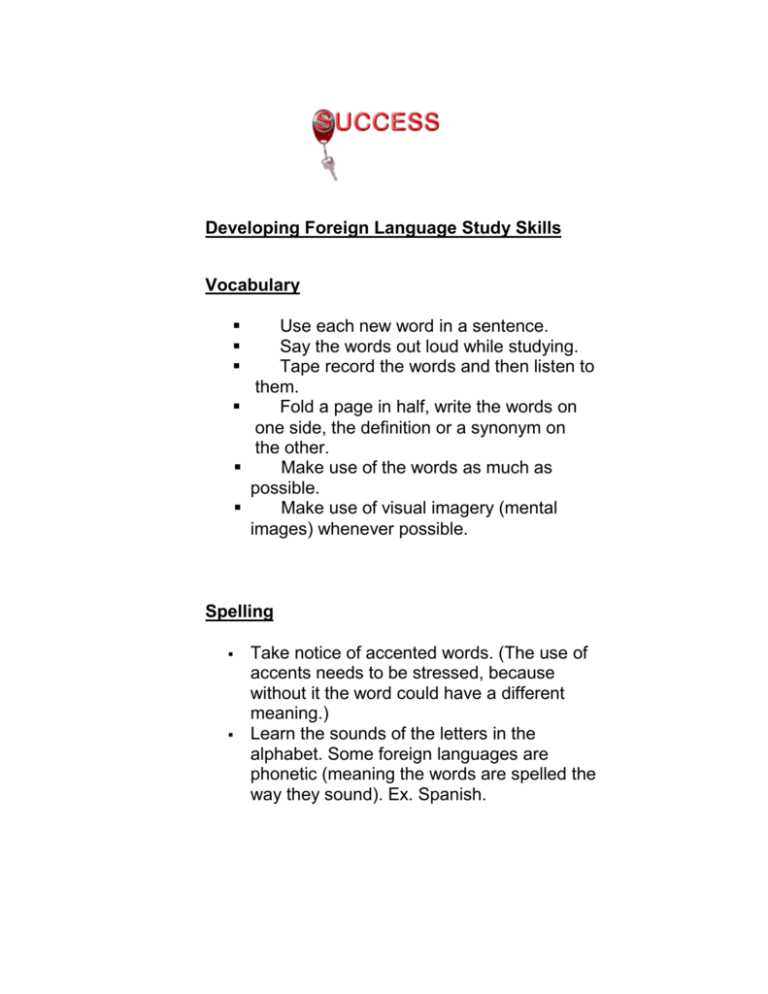
Developing Foreign Language Study Skills Vocabulary Use each new word in a sentence. Say the words out loud while studying. Tape record the words and then listen to them. Fold a page in half, write the words on one side, the definition or a synonym on the other. Make use of the words as much as possible. Make use of visual imagery (mental images) whenever possible. Spelling Take notice of accented words. (The use of accents needs to be stressed, because without it the word could have a different meaning.) Learn the sounds of the letters in the alphabet. Some foreign languages are phonetic (meaning the words are spelled the way they sound). Ex. Spanish. Grammar Review the reading; look for examples of new grammar. Try to use the form while practicing vocabulary. Try to identify the forms you already know. Use the new forms in written and spoken examples. Practice by making up your own examples. Reading and Listening Get the general idea of the selection by reading through it before using the dictionary. . Avoid translating; try to get your native language out of your mind. Read aloud. This will help to pronounce unfamiliar words and remember them. Look for familiar words or roots of words. Only use the dictionary as a last resort. Try to understand the words in their context. Look for nonverbal cues. If you don't know a word, continue listening or reading; don't panic and miss the end of the statement. Speaking You won't be able to say as much in the foreign language as in English. Don't worry about sounding simplistic. Don't worry about the grammar; focus on getting your meaning across. Force yourself to talk and think to yourself in the foreign language. Whenever you can, speak to your friends or native speakers in the foreign language. General Write every day. Do self-tests. Highlight the key points of every chapter. . Create lists and study sheets; use devices like rhyming and association to help you remember. Carefully listen to everything that happens during class. Mentally try to answer all the questions asked. Homework Carefully review the work of the day. Review previous work. Self test in writing the examples of that day. Your best resource is your teacher, so use it! Ten Tips for Parents of Foreign Language Students Parents can share in a child's foreign language experience whether or not they are familiar with the language their child is studying. Here are some suggestions provided by Loudoun County Foreign Language teachers: Be enthusiastic, supportive and inquisitive about your child's foreign language adventure. Ask your child frequently even daily what he did in class that day. Have him explain how the day's lesson fit into the overall language experience as he sees it. There is usually an assignment every day. Monitor your child's homework. Ask to see the finished product. Encourage your child to use a digital audio recording for practice. Students enjoy hearing themselves on audio and can easily create useful exercises. For example, the student records a list of vocabulary in English, pausing after each word, before supplying the foreign language translation. When playing the audio file, the student gives the foreign language translation for each English word and hears his pre-recorded answer allowing him to further practice. Encourage your child to cut our pictures of vocabulary he is learning. Keep a collection in a 3 ring binder or download visuals onto a digital file; this becomes a digital picture dictionary. Give your child frequent vocabulary drills at home. The more often the vocabulary is used the better it is retained. Don't forget to review old vocabulary too. Grammar and vocabulary drills from the Realidades text are available through PHSchool.com. For specific Spanish grammar or vocabulary practice visit www.studyspanish.com. Ask your child to name items around the house after he has had certain lessons. He'll enjoy being the teacher and everyone can join in the fun. There are a number of TV and radio programs offered in foreign languages. Encourage your child to listen for correct pronunciation and familiar words and phrases. Encourage your child to read homework aloud or record exercises. Put it aside and listen to it later. Can he recognize what is said?




